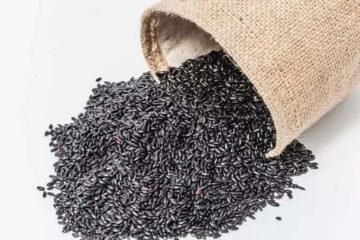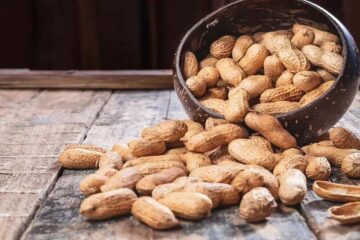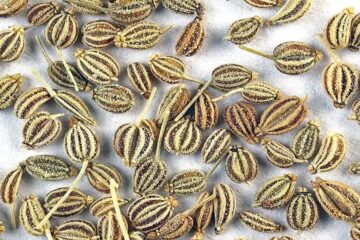Unveiling the Mighty Pumpkin Seed: Nutrition, Benefits, and Culinary Delights

When it comes to nutritious and versatile snacks, pumpkin seeds are often overlooked, despite their incredible health benefits and culinary potential. These tiny powerhouses of nutrition, often discarded after carving a pumpkin, have earned their place in the spotlight for their numerous health benefits, delicious flavor, and versatility in the kitchen. In this article, we will delve into the world of pumpkin seeds, exploring what they are, their nutritional value, health benefits, culinary uses, types, buying and storage tips, as well as potential precautions and side effects.
What Are Pumpkin Seeds?
Pumpkin seeds, also known as pepitas, are the edible seeds of the pumpkin (Cucurbita pepo) or other related squash varieties. They are flat, oval-shaped, and typically green in color, encased in a white outer shell. Pumpkin seeds are a staple in many cuisines worldwide, appreciated for their unique flavor and nutritional value.
Nutritional Value
Pumpkin seeds are a nutritional powerhouse, boasting a wide range of essential nutrients. They are rich in protein, healthy fats, fiber, vitamins, and minerals, including magnesium, potassium, zinc, and iron. A one-ounce (28-gram) serving of pumpkin seeds provides roughly:
- Protein: 5 grams
- Healthy fats: 13 grams
- Fiber: 1.7 grams
- Magnesium: 150 milligrams (37% of the daily recommended intake)
- Potassium: 220 milligrams
- Zinc: 2.2 milligrams (20% of the daily recommended intake)
- Iron: 1.6 milligrams (18% of the daily recommended intake)
Health Benefits
- Heart Health: Pumpkin seeds are a source of heart-healthy fats, such as omega-3 fatty acids, which may help reduce the risk of heart disease.
- Mineral-Rich: They are abundant in magnesium, potassium, and zinc, crucial for maintaining healthy bones, muscles, and overall bodily functions.
- Antioxidant Properties: Pumpkin seeds contain antioxidants like vitamin E, which combat free radicals and promote healthy skin.
- Blood Sugar Control: Some studies suggest that pumpkin seeds may help lower blood sugar levels due to their fiber content.
- Prostate Health: The high zinc content in pumpkin seeds is associated with supporting prostate health in men.
Culinary Uses
Pumpkin seeds can be enjoyed in various ways:
- Roasted Snack: Roast them with your favorite seasonings for a crunchy, savory snack.
- Trail Mix: Add them to trail mix for an extra dose of nutrients and texture.
- Salads: Sprinkle toasted pumpkin seeds over salads for a delightful crunch.
- Baking: Incorporate them into bread, muffins, or granola for a nutty flavor and added nutrition.
- Pesto: Pumpkin seed pesto is a tasty alternative to traditional basil pesto.
Types of Pumpkin Seeds
There are different types of pumpkin seeds, varying in size and shell thickness. Some common varieties include hulled seeds (shell removed), raw seeds, and roasted seeds with various flavorings like salt, spices, or sweeteners.
How to Buy and Store Pumpkin Seeds
When purchasing pumpkin seeds, look for packages that are airtight to ensure freshness. Store them in a cool, dry place or the refrigerator to prevent them from turning rancid. Properly stored, they can last for several months.
Precautions and Potential Side Effects
While pumpkin seeds are generally safe for most people, they may cause allergic reactions in rare cases. Additionally, consuming excessive amounts may lead to gastrointestinal discomfort due to their high fiber content. If you have a known seed allergy or digestive issues, consult a healthcare professional before incorporating pumpkin seeds into your diet.
Frequently Asked Questions
- Are pumpkin seeds high in calories? No, pumpkin seeds are relatively calorie-dense but provide a healthy mix of nutrients.
- Can pumpkin seeds help with weight loss? Their fiber and protein content can contribute to a feeling of fullness, potentially aiding weight management.
- Are there any pumpkin seed recipes for vegetarians and vegans? Absolutely! Pumpkin seeds can be used to create vegan pesto, protein bars, or even as a meat substitute in some dishes.
- Do pumpkin seeds go bad? Like all seeds, pumpkin seeds can go rancid over time. Proper storage is essential to maintain freshness.
- Can I eat the pumpkin seed shell? While edible, pumpkin seed shells can be tough to chew and are often removed before consumption.
Pumpkin seeds are a nutritional treasure trove with numerous health benefits and culinary applications. Whether you enjoy them as a crunchy snack, a topping for your salads, or an ingredient in your favorite recipes, these tiny seeds are a delicious and nutritious addition to your diet. As with any food, moderation is key, and it’s essential to be aware of potential allergies or digestive sensitivities when incorporating them into your meals.
















